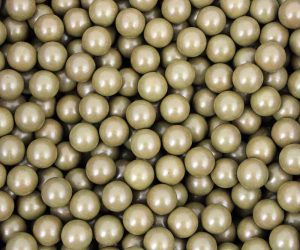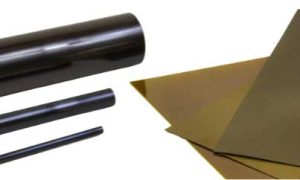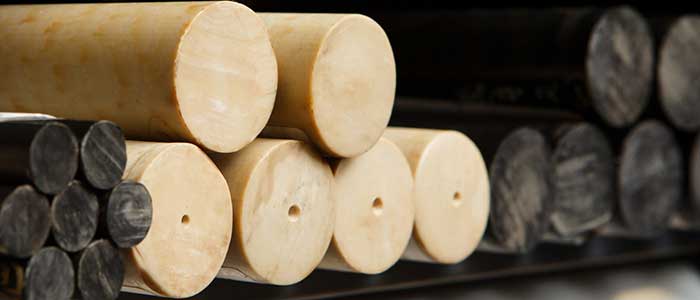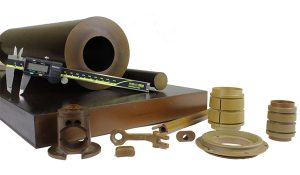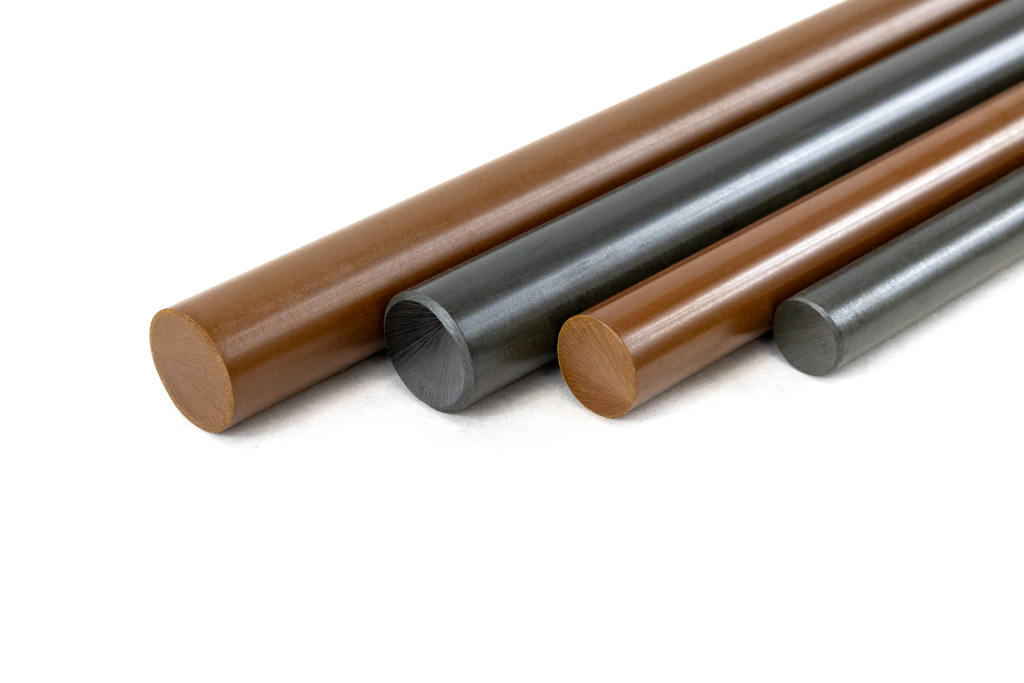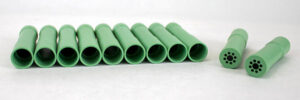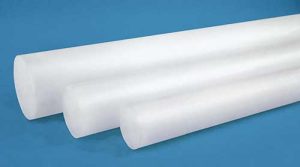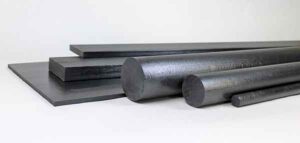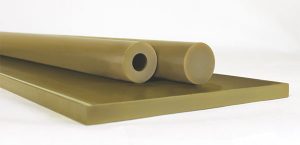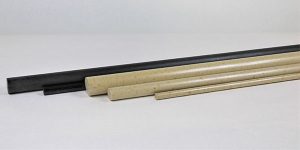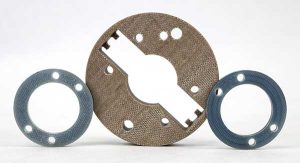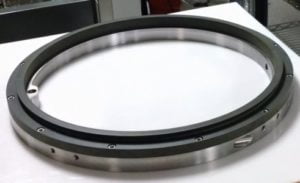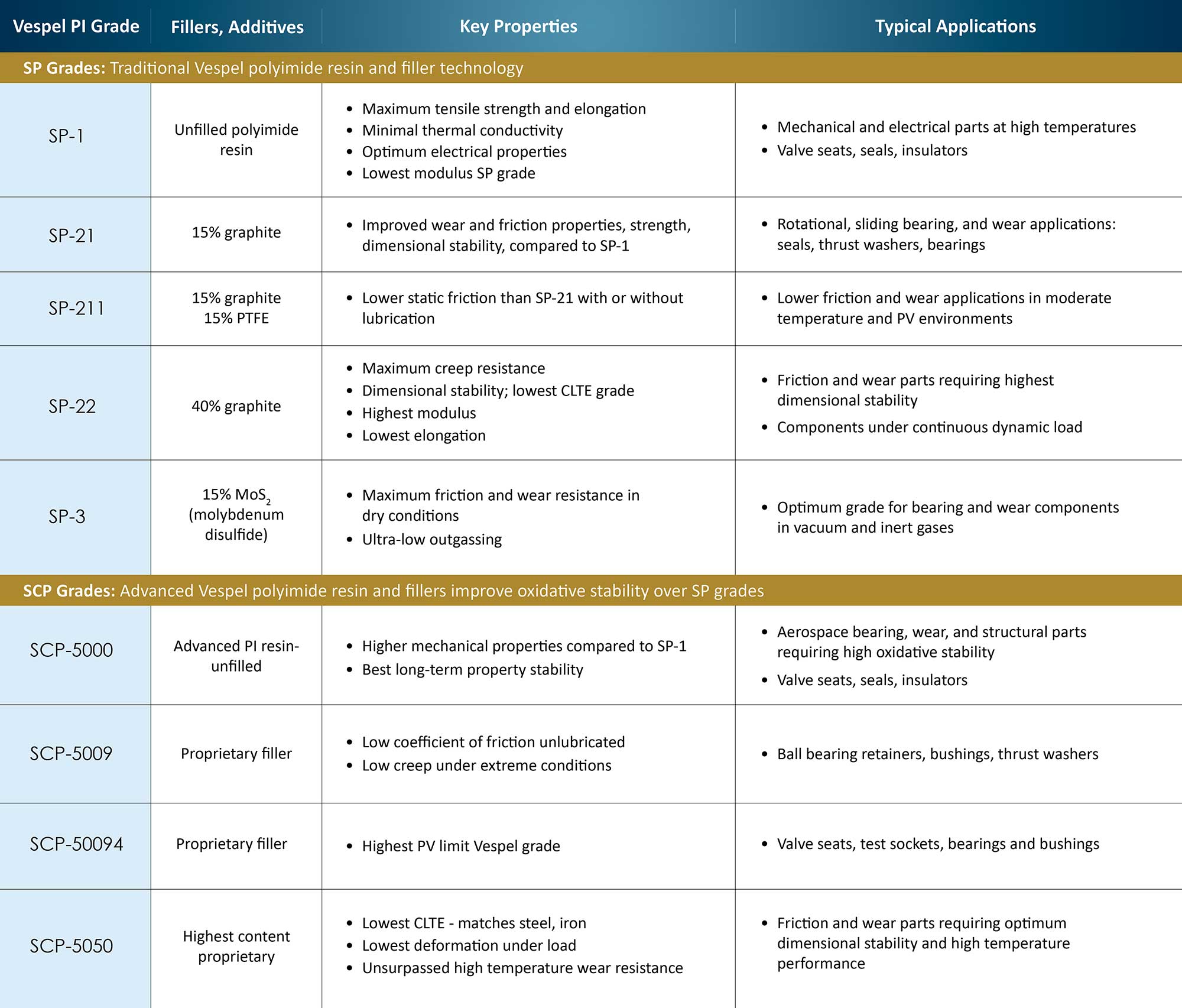Vespel® is the registered trademark for DuPont’s polyimide (PI) parts and machinable shapes products.
During its 50-plus year history, the Vespel SP product line has evolved into a family of grades that extend the service life and functionality of components and meet application requirements in challenging new environments. More recently, Vespel SCP formulations were developed with significantly improved thermal oxidative stability.
Today, the Vespel product line consists of a broad range of grades. Each has properties tailored to specific application requirements. Because of the number and diversity of products in the Vespel PI family, it is important to understand the performance differences to achieve the best balance of performance and cost for each application.
What are the Properties of Vespel® PI?
Several properties intrinsic to polyimide place Vespel PI in the top tier of advanced polymers on overall properties. While actual performance is application-dependent, all grades have these general characteristics:
- Operating temperature range from cryogenic levels to continuous 300 °C (572 °F)
- Tolerance to short-term temperature excursions as high as 500 °C (932 °F).
- High modulus, compressive strength, creep resistance and toughness
- High PV values for bearing applications with dry pressure velocity limits to 12 MPa m/s; higher with lubrication
- High dielectric strength, electrical and thermal insulative properties
- Resistance to a broad range of chemicals and solvents
- Low outgassing
- Highly resistant to ionizing radiation
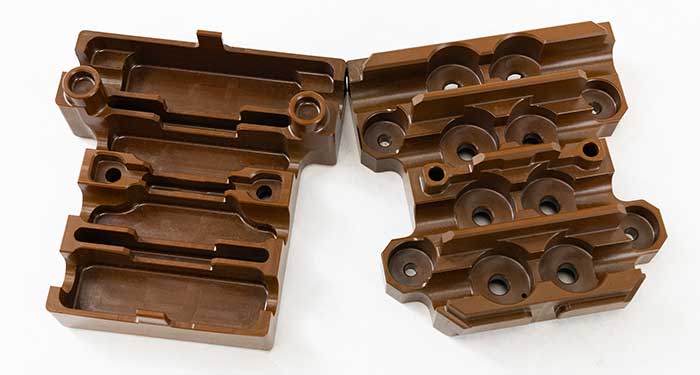
A notable attribute of the polyimide polymer is its softening point or glass-transition temperature (Tg) which is very close to its decomposition temperature. With Vespel PI, the point occurs well in excess of 400 °C (752 °F). This behavior translates to important differences between Vespel® PI and other high-performance thermoplastics:
- Property retention vs. temperature: The mechanical properties of most advanced thermoplastic polymers drop sharply as the materials approach their Tg or softening point. However, strength and modulus properties of Vespel polyimide grades decrease in a nearly linear manner as temperatures increase.
- Production of shapes and parts: As a true polyimide polymer, Vespel PI does not have a melt phase and cannot be melt-extruded or injection molded. Shapes and parts are made by compression or isostatic molding PI powder at high pressures and temperatures, similar to sintering powder metal parts. Variations on the technology produce different forms: Vespel PI rods are made by isostatic molding, plates and discs are compression molded, and custom parts are direct-formed and sintered.
- Isotropic properties related to production methods: Isostatic molding and compression molding impart isotropic properties to Vespel PI shapes. Also, Vespel PI shapes do not contain glass or carbon fibers. This means that the dimensional stability and properties remain the same in all directions within the shape. Parts machined from the Vespel shapes exhibit the same isotropic behavior.
How are Vespel® SP and Vespel SCP Grades Different?
The spectrum of Vespel® SP grades has expanded over 50 years to serve changing application requirements. The product line offers grades with various combinations and levels of fillers that improve the strength, stability, electrical properties and friction and wear characteristics of the basic Vespel® PI polymer.
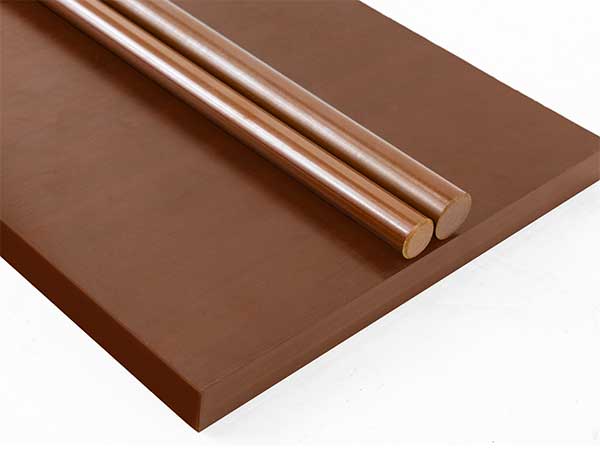
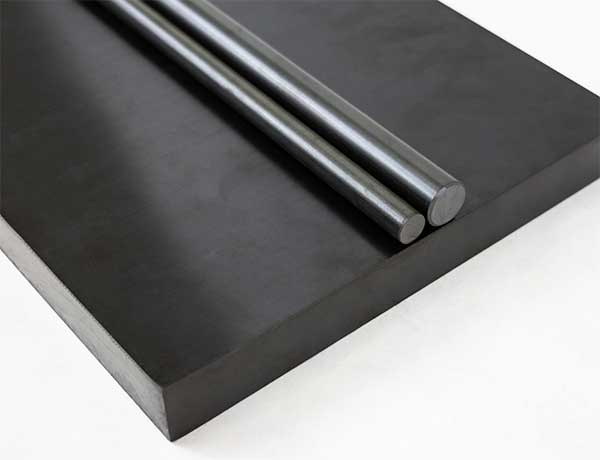
Vespel PI bearing and wear (left) and unfilled grades are available in a range of shapes for machining
The rapid advances in aerospace spacecraft equipment raised the bar on Vespel PI performance requirements. Given the challenges of maintenance and parts replacement, long-term reliability of components cannot be compromised. Materials must perform in radically different environments that can include elevated high temperatures, vacuum and cryogenic conditions and radiation, and short-term excursions to intense high temperatures.
Vespel SCP grades were developed to answer these higher performance challenges. Compared to SP grades, they provide a significant step up in long-term thermal oxidative stability for property retention, excellent friction and wear resistance, higher mechanical strength and greater dimensional stability.
Vespel® SP and Vespel® SCP Grades Keep Pace with Applied Technology
Vespel PI grades have kept pace with high technology industries’ need for materials that must function dependably in applications under increasingly more extreme conditions.
Machinable shapes and direct-formed parts in Vespel SP grades have a proven history in friction and wear, structural and electrical applications. They maintain properties when exposed to cryogenic and high temperatures, radiation, and numerous solvents and other chemicals. New SCP grades offer Vespel PI’s traditional properties coupled with more thermal oxidative stability and strength, extending the advanced polymer’s application range into an increasing number of aerospace and spacecraft equipment components.
Vespel® PI FAQs
Can Vespel® PI be injection molded?
The polyimide polymer is not melt-processable and cannot be injection molded. Parts in simple and complex configurations are made by direct-forming. Vespel PI shapes for machining into precision parts are available as compression molded discs and plaques, and isostatically molded rods.
Who makes Vespel® parts?
DuPont manufactures direct-formed Vespel parts. The company also manufactures rod, plaque and discs for machining into parts. The machinable shapes are available to technically-qualified and properly-equipped machining companies.
Is Vespel® PI expensive?
Vespel PI is a premium material. Like other advanced polymers, it is cost-effective when specified for the benefits it offers. For example, it extends the life of components and minimizes the need for replacement in environments that many plastics and metals cannot withstand. It is also specified for its reliability in spacecraft equipment where failure of components can have catastrophic effects.
What is the difference between Vespel® SP and Vespel® SCP?
Vespel SP grades are the traditional PI grades specified for over 50 years for their combination of friction and wear properties, chemical resistance, electrical properties, high strength and performance at cryogenic and high temperature extremes. Vespel SCP grades are based on advanced polyimide and filler technology that improve strength and resistance to thermal oxidation.
Are there other polyimide plastics like Vespel® PI?
Vespel is the most widely specified polyimide. Depending on the form, Vespel PI meets the requirements of ASTM D6456, MIL-R-46198 and AMS 3644G. Other polyimide products generally do not meet all the requirements of these specifications. Other non-melt-processable PI materials include Meldin® PI, Duratron® PI, and TECASINT® PI. Variations on the PI polymer include Torlon® PAI, chemically a polyamide-imide, and Ultem® PEI, or polyetherimide. Both are melt-processable ultra-high performance polymers that can be injection molded into parts and extruded into machinable shapes.
